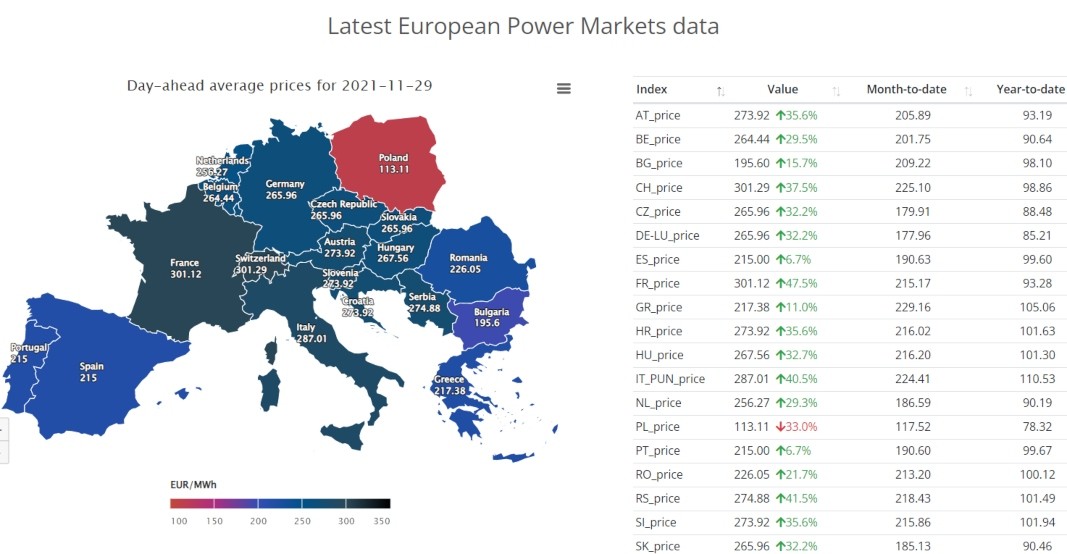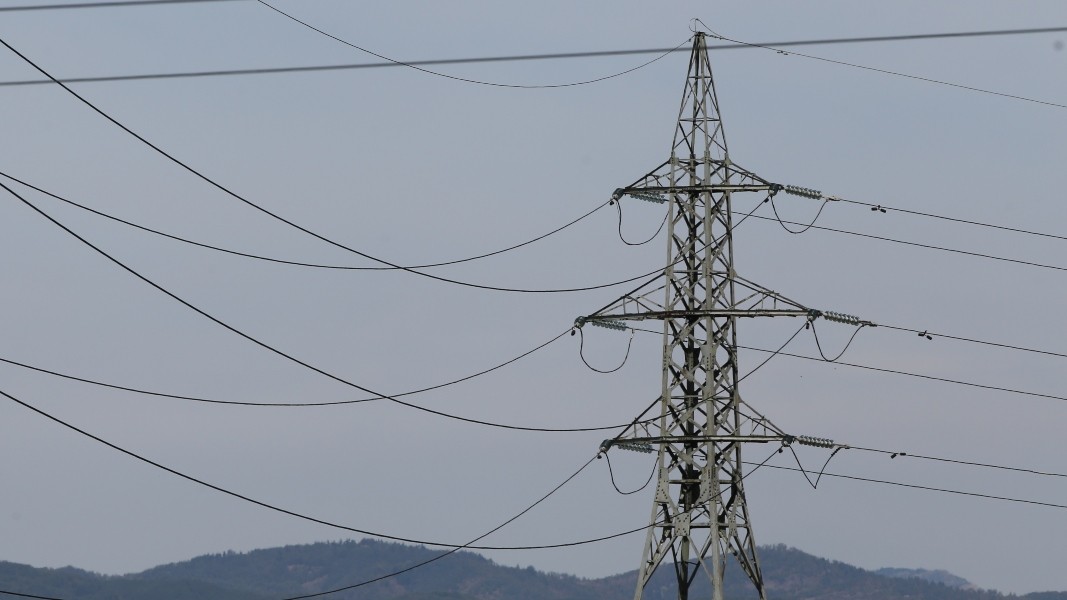Electricity prices in Bulgaria and other EU countries have been skyrocketing recently. Meanwhile, profits of the energy companies have also increased. According to latest financial statements, the profit of the state-owned National Electric Company amounted to EUR 142 million in the first nine months of 2021, whereas its profit in the same period last year stood at EUR 307,000 only. Electricity prices on the Independent Bulgarian Energy Exchange (IBEX) exceeded EUR 260 per 1 MWh. Thus, Bulgaria placed among the EU countries with the highest electricity prices, Money.bg informs. Meanwhile, Bulgaria continues to export electricity for a little over EUR 100 per 1MWh.
So far, household customers have not yet felt the recent price increase, because they buy electricity in the regulated energy market. However, this will change on January 1 next year. According to experts, the price of electricity for households will increase between 20% and 50%. Meanwhile, Bulgaria remains the poorest EU member state with an average salary amounting to EUR 789. Therefore, many people may experience energy poverty and may need state assistance to pay their bills.
The authorities are already moving in that direction. However, such decisions are difficult without the existence of a regular cabinet and a functioning parliament. Meanwhile, the expensive electricity has affected the prices of goods and services and in October 2021, the annual inflation reached 6%.
Unlike households, the companies have already received a state aid to the tune of EUR 56 per megawatt. According to representatives of Bulgaria’s business, this money is not enough. They demand compensations amounting to EUR 97 per 1 megawatt. On this occasion, the Bulgarian Employers Association has sent a letter to this country’s caretaker Premier Stefan Yanev. “We believe that the compensatory mechanist must remain in place, if prices remain extremely high”, the letter of the Bulgarian Employers Association reads.

For his part, Bulgaria’s caretaker Minister of Energy Andrey Zhivkov said that the total amount earmarked for energy assistance in October and November amounts to nearly EUR 225 million. “The new National Assembly should be functioning in December and it has to decide whether to provide subsidies for businesses”, Minister Zhivkov went on to say and added: “The National Assembly may resort to other measures – to reduce taxes and excise duties for natural gas, electricity, etc.”
Nobody knows how long the surge in electricity prices will last. Some analysts contend that prices will return to normal levels after the winter. In any case, the condition of many households and companies is getting worse. The situation would look even more disheartening, if we take the latest increase of gas and heating prices into account.

Everyone, except for the energy companies are on the losing streak. The future does not look so bright for consumers against the backdrop of the inevitable closure of the coal-fired thermal power stations and the uncertainty surrounding the possible expansion of nuclear capacities via the construction of a new nuclear power plant or the extension of the existing NPP in Kozloduy.
Written by: Vladimir Subev
English version: Kostadin Atanasov
Photos: BGNES, EnergyLiveA working group comprising representatives of employers, trade unions and government experts is discussing the proposals of the Ministry of Labor and Social Policy for introducing a new mechanism to determine the minimum wage. This is happening a day..
“The main priorities businesses have – membership of the Eurozone and accession to the Schengen area by land – have receded to the background. They are the motors which can boost the economy, but the fact there is no regular government is an obstacle..
Bulgargaz has reported record interest in its tender for the supply of LNG to the Alexandroupolis terminal for January and February 2025. All nineteen bidders met the criteria set by the company and have been approved to participate in the next..
Butter and vegetable oil are the products that have increased in price the most over the year. The retail price of vegetable oil will range between 3..

+359 2 9336 661
